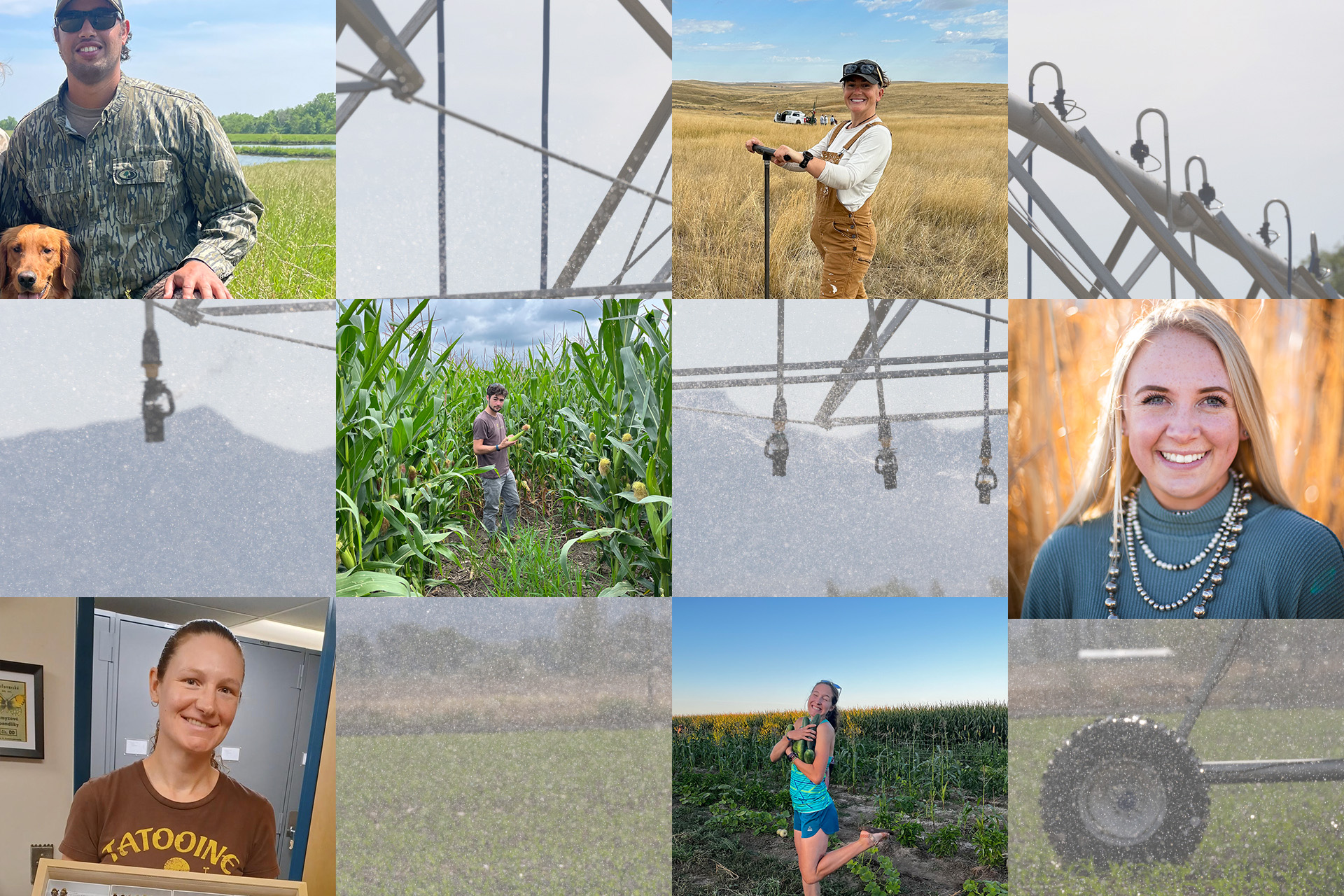
Who is the future of agriculture?
story by Christopher Outcalt
published Sept. 28, 2023
This fall, the College of Agricultural Sciences welcomed its largest-ever class on campus — a diverse group of students who are passionate about contributing solutions to global challenges like climate change and food security. We asked six students why they were attracted to pursuing careers in this field, what impact they hope to have and what makes them optimistic about the future of agriculture.
Jess Diehl

Senior majoring in animal science and minoring in agricultural business
What got you interested in pursuing a career in agriculture?
Ever since I started showing livestock at age 10, I knew I wanted to pursue agriculture as a career. I grew up in a ski town in Northwest Colorado and had minimal contact with industrialized agriculture, so when I went to Northeastern Junior College, I was ecstatic to learn more. My passions have always centered around the agricultural community, and I will never work a day in my life if I am doing what I am passionate about.
What impact do you hope to have?
I hope to assist in the public education efforts surrounding agriculture and agricultural practices. There is a lot of misinformation in the world surrounding modern agriculture, and I think it is important to ensure consumers know where they get their food products. I think doing this sustainably is another aspiration of mine.
What are the most pressing challenges you see to agriculture?
I think ignorance is one of the largest issues pressing agriculture today. There are so many people who are too far removed from the origin of the foods they eat and the clothes they wear.
What makes you feel hopeful about the future of ag?
I am very hopeful for the future of agriculture. Attending CSU has opened my eyes to the sheer amount of people who truly care about the industry and want to help it progress. Seeing students in the college who did not grow up in an agricultural background but chose to be here makes me optimistic.
Laura Moore
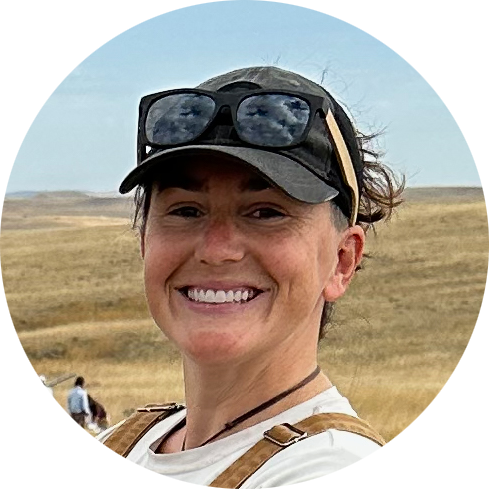
Doctoral student in the Department of Soil and Crop Sciences
What got you interested in pursuing a career in agriculture?
My path to agriculture is a bit of a long story. As a teenager, I struggled with mental health challenges, which affected my academic progress and left me feeling disconnected from my peers. As a result, once I graduated, I felt lost and unsure of who I was or what I wanted to do, and going straight to college didn’t feel like an option. In 2012, some family friends invited me to work on their farm in upstate New York for a summer. From day one, I was hooked. I knew I wanted to dedicate my life to agriculture, but at the time I wasn’t exactly sure how. There was just something so incredibly rewarding about weeding the garden, tending the chickens, feeding the animals and baking bread. I began to develop this deep connection with the world around me, and it was all thanks to ag. For the next seven years, I became a bit of a nomad, working on various farms and agriculture-related nonprofits in different parts of the United States and abroad. During that time, I not only learned practical farming skills, but also became acutely aware of the impact agriculture was having on the environment. This awareness ignited a passion in me to understand agriculture and the process happening in the soil more intensely. More specifically, I wanted to know how changing our approach to agriculture could mitigate climate change to solve problems globally rather than create them. So I decided to further my education and came to CSU to study soil and crop sciences.
What impact do you hope to have?
I hope to have an impact on agriculture by becoming a soil carbon scientist and conducting innovative research. Looking ahead, my long-term goal after finishing my doctoral degree is to work for a private organization dedicated to leveraging science and technology to combat climate change. I hold a firm belief that there isn’t a single, one-size-fits-all solution to the climate crisis. Instead, it’s a matter of piecing together numerous smaller solutions that collectively will enable us to adapt and persevere. My aim is to play a part in crafting these solutions so that we can continue to sustain our growing population.
What are the most pressing challenges you see to agriculture?
In my opinion, soil health stands out as one of the most pressing challenges in agriculture today, due to its fundamental role in climate mitigation, global food production and ecosystem health. Soil is quite literally the foundation of agriculture. However, unsustainable agricultural practices are leading to soil degradation and erosion, making it increasingly difficult to cultivate crops without heavy reliance on synthetic fertilizers. Additionally, soil plays a pivotal role in the fight against climate change, as soils can sequester carbon from the atmosphere, aiding in climate change mitigation. Degraded soils, however, can become carbon sources, exacerbating climate issues rather than alleviating them. I believe that neglecting the preservation and restoration of soil health could pose one of the greatest threats to global food security.
What makes you feel hopeful about the future of ag?
There is so much to feel hopeful for about the future of ag. At CSU, I am fortunate to be surrounded by brilliant scientists and agronomists who have dedicated their lives to advancing our understanding of agriculture. Every day I learn about new technologies and practices that farmers around the world are implementing so they can ensure their land will continue to produce for future generations. Additionally, the conversations around our climate and how agriculture is impacting it are becoming increasingly popular in the media and everyday life. Despite the sometimes-gloomy outlooks painted of our earth’s future, I am genuinely encouraged and inspired by the positive developments I see in the field.
Brittani Meis
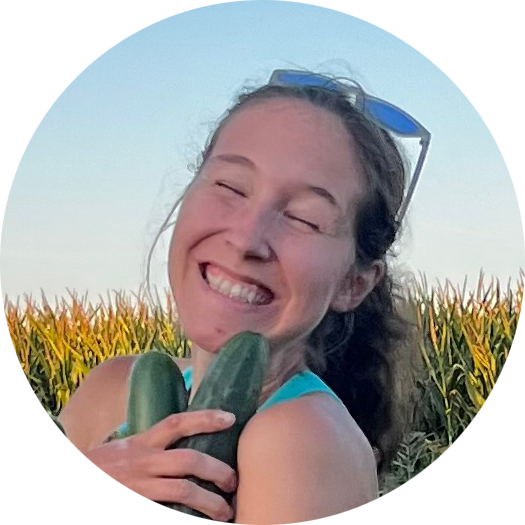
Senior majoring in soil and crop sciences
What got you interested in pursuing a career in agriculture?
My father and I started a garden when I was 12. As the seasons passed, I started noting infrequent, intense storms and extreme temperature swings: Whenever it was dry for long periods of time, I worried about my garden. I could only visit my father every other week, and my mother refused to take me out. Around the birth of my garden, I learned about photosynthesis. As I grew older, I connected burning fossil fuels to the changing climate and thought photosynthesis was the key to solving climate change. As I continued in my studies, I learned there is much more than plants absorbing all our problems and turning them into an endless supply of food and oxygen. While yields are strongly correlated to soil carbon, management practices play a key role in determining what happens to soil and atmospheric carbon — and ultimately producer income and food security in the region.
What impact do you hope to have?
Climate change is on everyone’s mind. Not many know, however, that climate change is influencing yields. For example, one statistic I find hard to wrap my head around is that due to climate change and erosion, our topsoil will be gone in 60 years. A lot of people depend on agriculture for a living — I experienced this first-hand when I went to Kenya for an independent study abroad for a month this summer. This trip made a huge impact on me, and I decided I wanted to help make peoples’ lives easier and supply more food and more prosperity despite the effects of climate change as my career goal.
What are the most pressing challenges you see to agriculture?
Declining soil health. As I tell everyone, soil is the foundation for life. If we take care of our soils, it will support the entire ecosystem.
What makes you feel hopeful about the future of ag?
Agriculture must always be evolving; same for science. I look forward to facing these challenges and solving these questions with the agricultural and scientific community.
Matthew Aldus
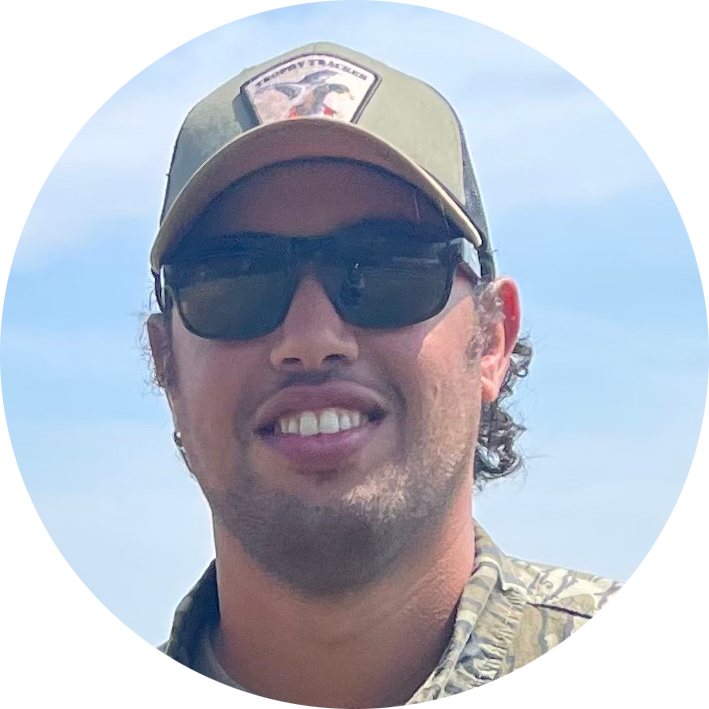
Senior majoring in soil and crop sciences
What got you interested in pursuing a career in agriculture?
I come from an agricultural area, and was involved in agriculture myself. Farming and agricultural systems as a whole grab ahold of you once you get involved. It’s one of those things I knew I needed to do for the rest of my life.
What impact do you hope to have?
I really want to work directly with producers to provide an outside voice/prospective to the decisions they need to make. If I can help just one farmer or rancher save or make money while improving their land, then I’ll be satisfied.
What are the most pressing challenges you see to agriculture?
With an increasing global population and a changing environment, agricultural producers are in a unique position where they need to increase output of their land to meet the global needs while also being at the forefront of land improvement. These decisions that involve profit, production, and sustainability have a considerable impact on their community.
What makes you feel hopeful about the future of ag?
I think we’re at the beginning of another tech wave. Electronics are getting cheaper and easier to make, making them more accessible. An added benefit to the affordability of new devices is that the upcoming generations of farmers are probably to going to know how to use or at least apply any new devices that come out, allowing for a more data-driven, balanced approach to how we produce our food.
Heide Keeble
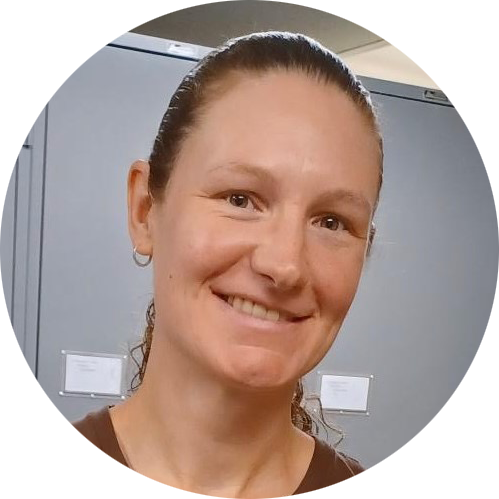
Senior majoring in agricultural biology with an entomology focus
What got you interested in pursuing a career in agriculture?
I grew up on five acres in Northern California, and my dad was a Future Farmers of America kid. We were surrounded by a duck farm, a chicken farm and a dairy. We raised our own beef cattle, sheep, chickens, ducks and geese, and had an assortment of farm pets. Every year we had a summer family garden, and I was given my own corner of it to plant whatever I wanted: usually okra, lemon cucumbers and zinnias. My dad was an organic farmer as a vocation for a few years. I helped him in the garden, at farmers markets, and selling and delivering lettuce to local restaurants. There was even a restaurant that bought flowers that I grew. Now I have my own summer vegetable garden here in Colorado. So, I suppose I have always been interested in agriculture.
What impact do you hope to have?
I am still on the fence about which direction that I want to go after I get a graduate degree, but I am hoping to be able to do some research and some teaching. In past years, I have enjoyed leading hikes and teaching others about the outdoors. I may continue to do some form of outreach education, which will hopefully influence the next generation. I am currently working on a project for my senior capstone class where I will go into elementary school classrooms and teach the students about the value of arthropods (bugs). Some of those bugs are the predators and pollinators that help us in our gardens and on production farms. I’d love for the kids to start to see bugs as friends and useful parts of the ecosystem, rather than things to be afraid of or smashed indiscriminately.
What are the most pressing challenges you see to agriculture?
Based on current estimates, and with current agricultural practices, the human population will outpace the production of food by 2050. If the Earth’s population continues to grow as it has been, the field of agriculture will have to do something to produce more food for an ever-growing population. We also need to make sure that we are not depleting soils or poisoning the surrounding environment in an effort to grow as much food as possible as quickly as possible.
What makes you feel hopeful about the future of ag?
There are a lot of great researchers at CSU and beyond, and some of them are working on some amazing things. Most of these researchers are very passionate about what they are doing, which helps to get the next generation excited about continuing these goals. Some of the things that I know are being worked on at CSU: how to sequester more carbon in agricultural soils, how to reduce crop yield loss by combatting pests in novel ways, how to feed cattle more efficient food to reduce the amount of methane they produce.
Oliver Hoffman
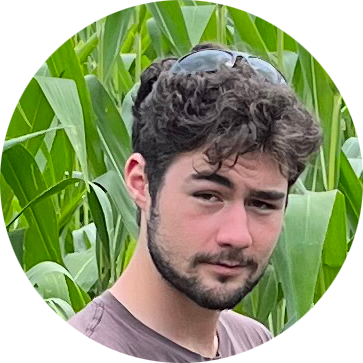
Master’s student in the Department of Soil and Crop Sciences
What got you interested in pursuing a career in agriculture?
When I came to CSU as a freshman, my initial major was ecosystem science and sustainability. I was drawn to the field due to my interest in ecological systems and climate change science. However, I soon switched to soil and crop science because it was a better match for my passion and career aspirations. Within soil and crop, I found a unique opportunity to contribute to both food security and climate change solutions simultaneously. As I delved deeper into my studies, I became increasingly captivated by the world of soils. A world where inorganic bedrock connects the vibrant vegetation that blankets our planet. I found a building block of our world and discovered the critical role it plays in fostering the food, feed and fiber production, along with ecosystems and wildlife habitat. In the summers I had an amazing opportunity to work with my grandmother on management of her farmland in Southern Minnesota; this experience highlighted the need for research on soil health and took me down the rabbit hole of researching soil health.
What impact do you hope to have?
Within agricultural research, my primary aspiration is to ensure that the science we produce in the lab is readily applicable to those who are having the largest impact: farmers. Occasionally, scientists become stuck in their bubble and lose sight of the fundamental purpose of a land-grant institution: supporting farmers. I envision my impact in agriculture starting at a personal level, by establishing trust and providing support to farmers. Through forming a strong relationship with our producers, we open the door to mutual benefits. Our research can be purposefully directed to address real-world challenges in the field, while simultaneously assisting farmers in improving on farm sustainability without compromising productivity. I often see people view agriculture as a binary choice between sustainability and productivity. My goal is to contribute to our mission of building that bridge, starting from the ground up.
What are the most pressing challenges you see to agriculture?
I think the most pressing challenge in agriculture is what I think of as the agricultural dilemma: We as humans require food, feed, and fiber, yet to produce those on scale has far-reaching impacts on our environment, encompassing issues like land use, water use and energy use. So, how do we meet the demands of a growing population amid a changing climate while also improving farm sustainability? Within the United States alone we see substantial variations in climate, soil types and demographics across different regions. Consequently, when we identify a solution to the agricultural dilemma in one area, it does not universally apply. In a society often driven by economic considerations, the financial resources required to implement comprehensive solutions on a nationwide or global scale are often lacking. This constraint highlights the intricate challenge we face and emphasizes the necessity for researchers and stakeholders to collaborate in producing solutions that address this dilemma.
What makes you feel hopeful about the future of ag?
Despite the inherent complexity of this dilemma, I feel hopeful that we will adapt and innovate in ways that will solve it. I draw this hopefulness from my journey in agriculture and observations made in this field. Working in the small county of Faribault County, Minnesota, I have witnessed a shift towards more soil health practices, with state and federal funding directed towards furthering these efforts. Additionally, the emergence of new agricultural technologies designed to enhance the precision and efficiency of resources utilization, thus reducing environmental impacts, has been encouraging. Having firsthand knowledge of the impactful research produced by our department, then seeing the positive on-farm impact fuels my optimism. I believe through collaborative efforts, fostering connections, sound science and curious individuals, we can overcome challenges as intricate as the agricultural dilemma.
Read more of The Future of Ag is Now
This special report from SOURCE explores the breadth of multidisciplinary, agricultural work happening at CSU — a place where researchers, students and food producers can all gather around a kind of university-wide table to acknowledge the vital importance of ag in Colorado and beyond.